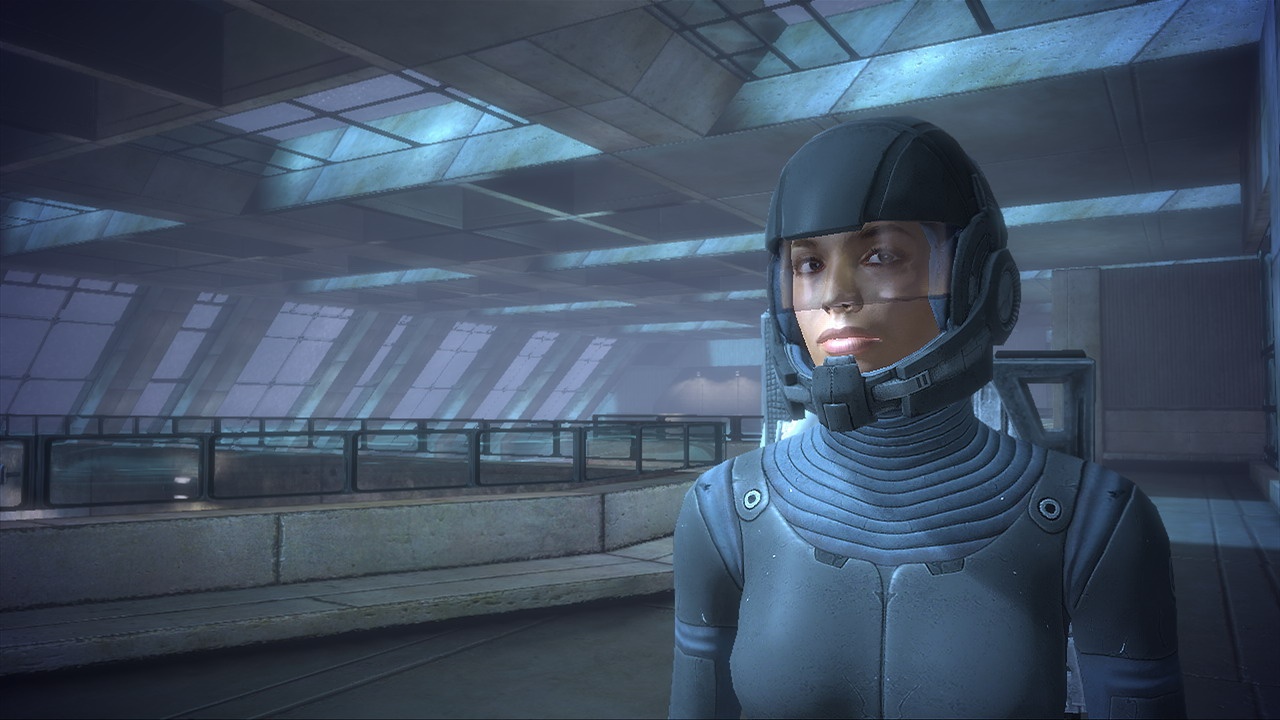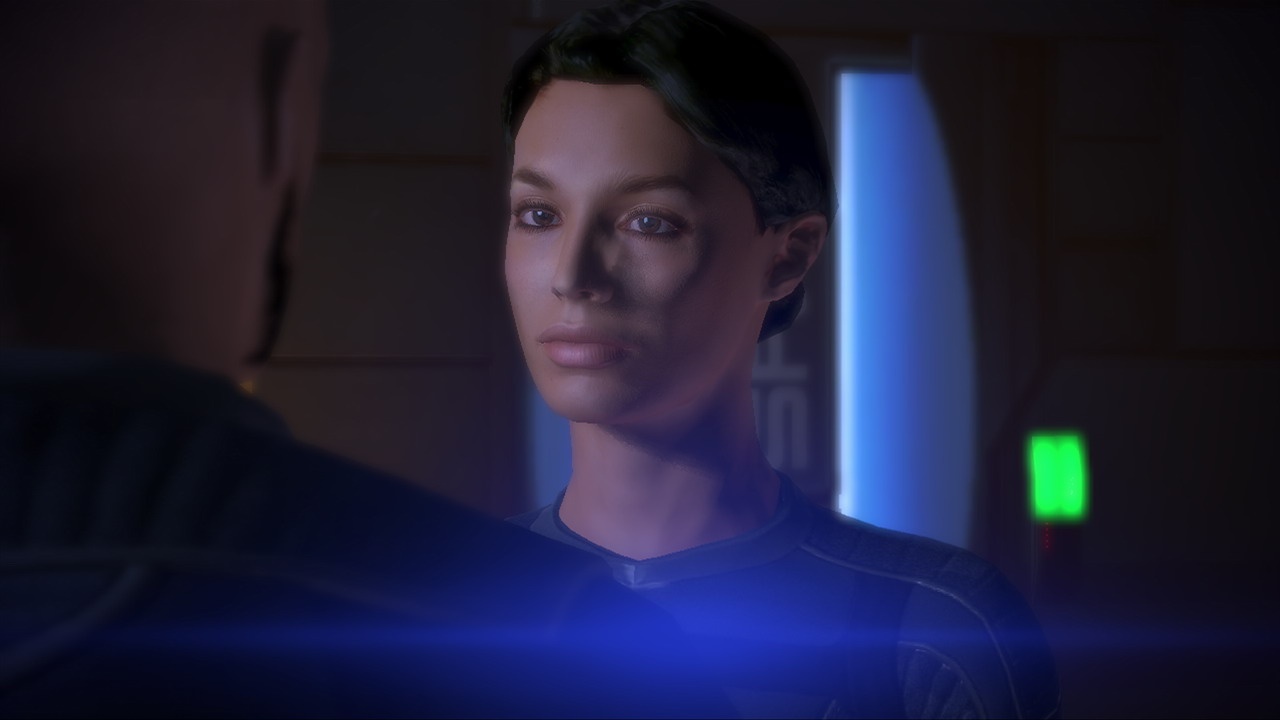Mass Effect: Q&A with Seth Green
We chat with the actor about his role in BioWare's upcoming sci-fi RPG.
Among the all-star cast lending their voice talents to BioWare's upcoming RPG epic, Mass Effect, Seth Green (Austin Powers, Without a Paddle) is one of the best known. The actor has enjoyed a career in the television and film industry that spans 25 years and has recently taken on the hat of creator and executive producer of the popular "Robot Chicken" series on Cartoon Network's Adult Swim lineup. Green will join other film and television stars such as Marina Sirtis (Star Trek: The Next Generation, Net Games), Keith David (Crash, Delta Farce), and Lance Henriksen (Aliens, Sasquatch Mountain). We recently had a chance to speak with Green about his upcoming role in Mass Effect to see how the actor prepared for his role as Joker in the upcoming sci-fi game.
GameSpot: How did you get involved in the project?

Seth Green: I got asked.
GS: Nice.
SG: Yeah. It was real complicated.
GS: Yeah, but by who though, I mean, just randomly, like did they pick you?
SG: I guess so, yeah, I got approached. I'm assuming there's a list of acceptable people that they would choose, and I'm not sure how far down I was. I'm guessing Ethan Hawke and Jonah Hill got the call before I did.
GS: How much did they fill you in on the story when they approached you? Did they come in and say, "Do you want to be in a video game?" or did they kind of give you a rundown of what--
SG: I got sent a lot of information: a bunch of cool demos, some graphics, character explanation, and story explanation. Just the overview of what the game was going to be; what the new technology was. And it all just seemed really cool.
GS: Did you prepare much for it? This wasn't exactly like a typical role.
SG: Yeah, it's different. I mean, the benefit of voice-over is that you can kind of create the persona in the booth as you're going along. And each of the lines was specific. So, they let me know what the character was, and you know, you can tell by the dialog how he reacts to things. So, I just went in, you know, in jeans and a T-shirt.
GS: You kind of already touched on this, but what are the challenges of acting in a game as opposed to in front of the camera? I mean, wardrobe is obviously not a hassle.
SG: No, voice-over is great just because you really build it. The downside is that you have to do everything with your voice; you can't rely on any kind of facial features, or there's no subtlety in your movement to define attitude or persona. You got to do it all with your voice. But it is easier to become something very different than you are physically because nobody can see you, they can only hear you.
GS: Yeah, but were you able to see what your character looked like?
SG: Oh, yeah, they gave me a rough idea. I'm not sure if they modified it or anything.
GS: You're pretty much known for your humor and your certain type of wit. Were you able to put that in, or did you feel maybe that you should play it a little more straight because of the kind of game that Mass Effect is?
SG: I played it fairly straight. I didn't do it with a winking eye and it wasn't comedic at all, but the character is pretty sarcastic and uses mean-spirited humor. People underestimate him all the time. And so he has a biting wit that kind of combats that.
GS: How much room was there for improvisation?
SG: There was a script, absolutely. The only improv I did was within the boundaries of it. There are certain details that the player needs that I had to--my character's role was to inform them. So, I answered all those questions in the dialog. And then whenever I was making a mean-spirited comment or anything like that, that's where the room for improv was.
GS: Where did you record and how long did it take?
SG: We were just west of Burbank, and I did it over two sessions. It took about four to six hours.
GS: Do you play games and what are you playing now?
SG: I'm terrible at games. The two games that I've mastered are Tetris and Ms. Pac-Man, and that should give you some insight into the type of games I'm good at. I wish I were better at games. I have a bunch of friends and they all love to play the online games and the console games and the Halos and all that, and I'm just terrible at it. I really wish I could get better but it's a skill that I have an awful time acquiring. And I've tried. I've sat for many hours with my buddies, wanting to be part of the group, and just being a liability to them.
GS: Do you own any of the systems, or are you more kind of like a backseat gamer?
SG: I am the guy who looks over the shoulder of my friends and cheers them on and gets vicarious enjoyment.
GS: So are you going to be playing Mass Effects, or are you going to be getting one of your friends to play it and just kind of hang out and watch?
SG: I'm sure as hell going to try it. I'm excited to try it. It's a cool-looking game. The sad reality is that I'll have to play it by myself so that I'm not insulted relentlessly by all my buddies who are good at it. And then eventually if I want to see how the game actually is played I'll probably watch one of them.
GS: Was there a particular video game that changed your life, for better or for worse?

SG: Definitely Ms. Pac-Man. I started playing it when I was about 8 years old. Same as everybody who was eight at the time when it came out. And I played it all the time. I was traveling to and from New York for auditions when I was a kid, and my mom and I had time to kill in the train station waiting for trains and such. And there was an arcade that had like 10 Ms. Pac-Man machines. And I would just watch these hustlers play the game over and over and over again, and they spent hours and hours and hours, and just gambled on it. And I would study what they did and paid attention to the patterns that they played, and just played over and over and over again. I think it changed a lot of people's lives. It was the first time that girls were coming to an arcade--to play Ms. Pac-Man.
GS: We're seeing a lot of Hollywood talent getting roped in to do game stuff. Do you think that's a good thing?
SG: I don't know that there's really a downside to it, in a day and age when the Hollywood studio system is desperately searching for new and original content. They're turning everywhere. You know, comics have become really popular. Video games have become really popular. What's nice is that people are accepting all these other mediums which are really rich in story and character, [it] can be a jumping off point for other types of media. I like that instead of making another disposable romantic comedy, people are making a Resident Evil adventure movie. I'm not opposed to that. So, the crossover is just kind of natural. We're in a place where there isn't the same kind of distinction between television and film actors. So, it only stands to reason that people are being approached to do all types of things.
GS: You're of the age where games were kind of a part of your life; if you look at society right now, kids just grow up and they don't think anything of it. When games came out there was kind of a nerd stigma, but now they're kind of widely accepted. Do you think games are finally part of the mainstream?
SG: Definitely. Yeah. There's all sorts of thing that were considered nerdy or geeky or there was a stigma attached to them, and they've become socially accepted just because people are realizing--I hope--on a grander scale that intolerance is really unacceptable. And people are looking to find value--or, at least, open to finding the value in things that they never considered before.
GS: Nice.
SG: Turned it into a social statement! [Laugh.]
GS: And Mass Effect is all about social statements.
SG: It really is.
GS: Now, you talked about exploring new things. Are we going to see you in games more? Because we've seen you pop up here and there.
SG: [Laugh.] I'm certainly not opposed to it, but I'm fairly picky with what I like to do, so trying to pick stuff that's going to be really cool or fun.
GS: And so does this mean now that you're sort of leaning more toward game stuff, that you're going to make a concerted effort? Like, if we talk to you in '08, are we going to hear that, "I finished Mass Effect," or I moved up beyond--
SG: [Laugh.] Maybe in the third quarter of '08. I'll be like, "I finally got to the second level!" That'd probably be more accurate. Cause if I start playing the second I get the copy of it, and play it through until the third quarter of '08, I might get to the second level.
GS: The developers can help you cheat, just so you know.
SG: I don't like to cheat.
GS: All right.
SG: Although I probably would, because I'd like to see how the game ends. [Laugh.]
Got a news tip or want to contact us directly? Email news@gamespot.com
Join the conversation